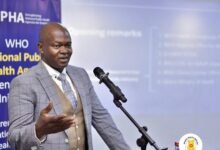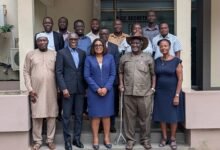
A total of 254,753 Human Immunodeficiency Virus (HIV) persons are currently on Highly Active Anti-retroviral Therapy (HAART).
This was disclosed yesterday in Accra during the launch of 20 years of HIV Antiretroviral Treatment in Ghana.
The Director General of GHS, Dr Patrick Kuma Aboagyel, said before the introduction of ARVs, the focus was mainly on managing infections and providing support to those living with HIV.
“However, since the adoption of ARV therapy, there has been a revolutionary shift in the treatment and management of the virus. ARVs, a combination of drugs, effectively suppress HIV replication, leading to improved health and extended life expectancy for individuals with HIV,” he said.
Dr Kuma-Aboagye said ARV therapy did not only enhance the quality of life, but also reduce the risk of transmitting the virus to others, making it a crucial tool for individuals and public health.
Reflecting on Ghana’s journey, he said the country diagnosed its first AIDS case in 1986 and swiftly established structures like the National Advisory Council on AIDS (NACA) and the National AIDS/ STI Control Programme (NACP) to address the epidemic.
“Through collaborative efforts between the government, international organisations, and healthcare providers, Ghana has expanded access to ARVs, establishing treatment centres nationwide and implementing standardised care protocols,” he said.
He said through efforts, Ghanaians living with HIV now have access to life-saving treatment than ever before, leading to a decline in HIV-related mortality rates and new infections.
However, Dr Kuma-Aboagye said challenges such as stigma and discrimination towards individuals living with HIV and ensuring the sustainability of ARV programmes through adequate funding and healthcare infrastructure still persist.
He emphasised the need for prevention strategies such as education, condom distribution, and voluntary counselling and testing (VCT) in the fight against HIV.
Dr Kuma-Aboagye said there was the need to intensify efforts to educate, sensitise communities and dispel myths and misconceptions surrounding HIV and ARV.
“We must also strengthen our healthcare infrastructure, ensuring that healthcare professionals are trained and equipped to effectively manage HIV and provide continuous care,” he said.
He called on stakeholders to continue to support and pave the way for a future where Ghana could envision a society free from the burden of HIV, ensuring every citizen could also lead a healthy and fulfilling life.
The Director, Public Health, Dr Franklin Asiedu Bekoe, said, “In 1986, Ghana, like many other nations, grappled with fear and uncertainty amidst the HIV/AIDS pandemic. Those living with HIV faced immense challenges, yet they held onto hope for a breakthrough.”
According to him anti-retroviral emerged as a beacon of hope, promising a brighter future, adding that over the past two decades it has evolved and improved, transforming HIV/AIDS from a virtual death sentence to a manageable chronic condition in many parts of the world.
Dr Asiedu Bekoe said some of the activities to commemorate the anniversary would include a tour of ART sites, commemoration project and national stakeholder dialogue on ART commodity security titled “Procure HIV commodities or perish with passion”.
“Some of the events are, quiz, debate, sports competitions, and a health walk, soccer, a legacy project, a durbar and an awards night to honour our heroes and heroines in the fight against HIV,” he said.
BY AGNES OPOKU SARPONG





